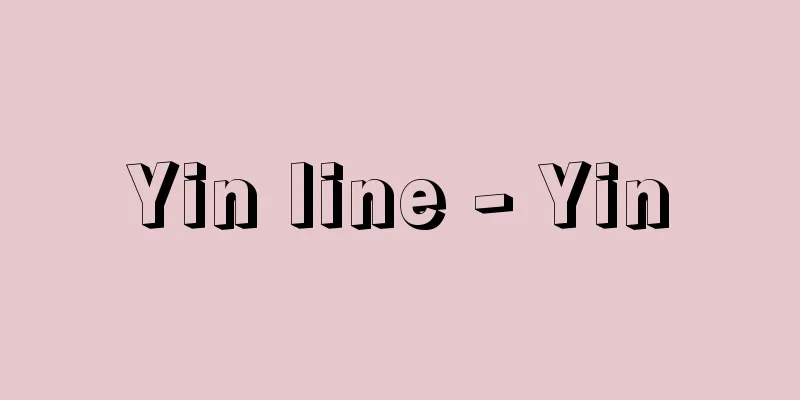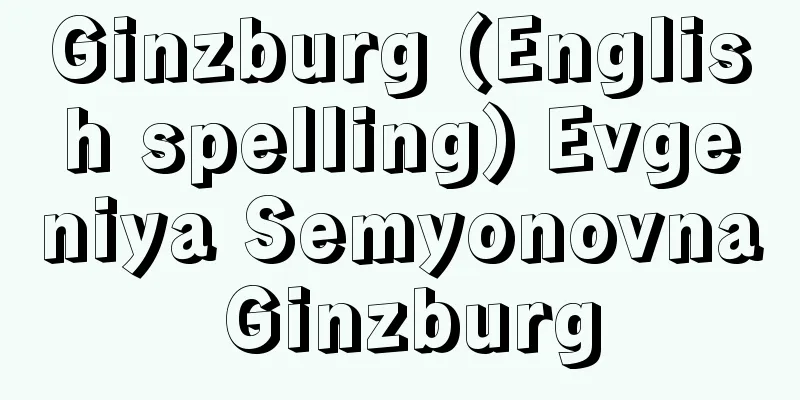Yin line - Yin

|
A symbol used in the Yin-Yang philosophy of ancient China, where a yang line is a single line and a yin line is two lines with a missing center. While a yang line represents "masculine," "strong," "moving," and "sunlight," a yin line represents "feminine," "obedient," "still," and "shade." In I Ching, a hexagram is created using these two lines, divided into yin and yang. Source : Academy of Divination School About the Divination Glossary |
|
古代中国において考えられた陰陽思想に使われる記号で、陽爻は一本線、陰爻は中心が欠けた二線になる。陽爻が「男性的」「剛健」「動く」「日向」などを表すのに対し、陰爻は「女性的」「従順」「止まる」「日陰」などの意味合いがある。易では、この陰と陽に分けた二つの爻を用いて卦を作る。
出典 占い学校 アカデメイア・カレッジ占い用語集について 情報 |
Recommend
Spiroplasma
...At first, the leaves turn yellow and the core ...
George Hepplewhite
?-1786 English furniture maker and designer. His c...
Ma Rong - Bayu
A scholar of classics in the Eastern Han Dynasty ...
German News Bureau (English spelling)
...After World War I, with the change in the bala...
Imagawa Ujizane
[Born] Tenbun 7 (1538) [Died] December 28, 1614 (K...
Dedicated line - Dedicated line
A connection line that a user rents from a communi...
Former Shogunate Succession Document - Kyuubakufuhikitsugisho
…The documents of the Magistrate's Office wer...
Archimedes' Spiral - Archimedes' spiral
…(8) A curve expressed by r = f (θ) ( f is monoto...
Liu Ho-chien (English name)
A Chinese physician during the late Jin Dynasty an...
Shoulder-hand syndrome
In addition to dull shoulder pain, movement is res...
Meishintanyu - Kukatachi
An ancient method of evidence. Mud was boiled in ...
Image compression - Gamenashuku (English) image compression
This is a method of reducing the amount of image d...
Buddhist iconography
In Buddhism, the word "icon" is used in ...
Urabe Suetake
950-1022 A warrior in the mid-Heian period. Born ...
Aurier, GA - Aurier
For example, Van Gogh intentionally tried to use ...









